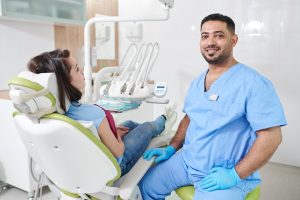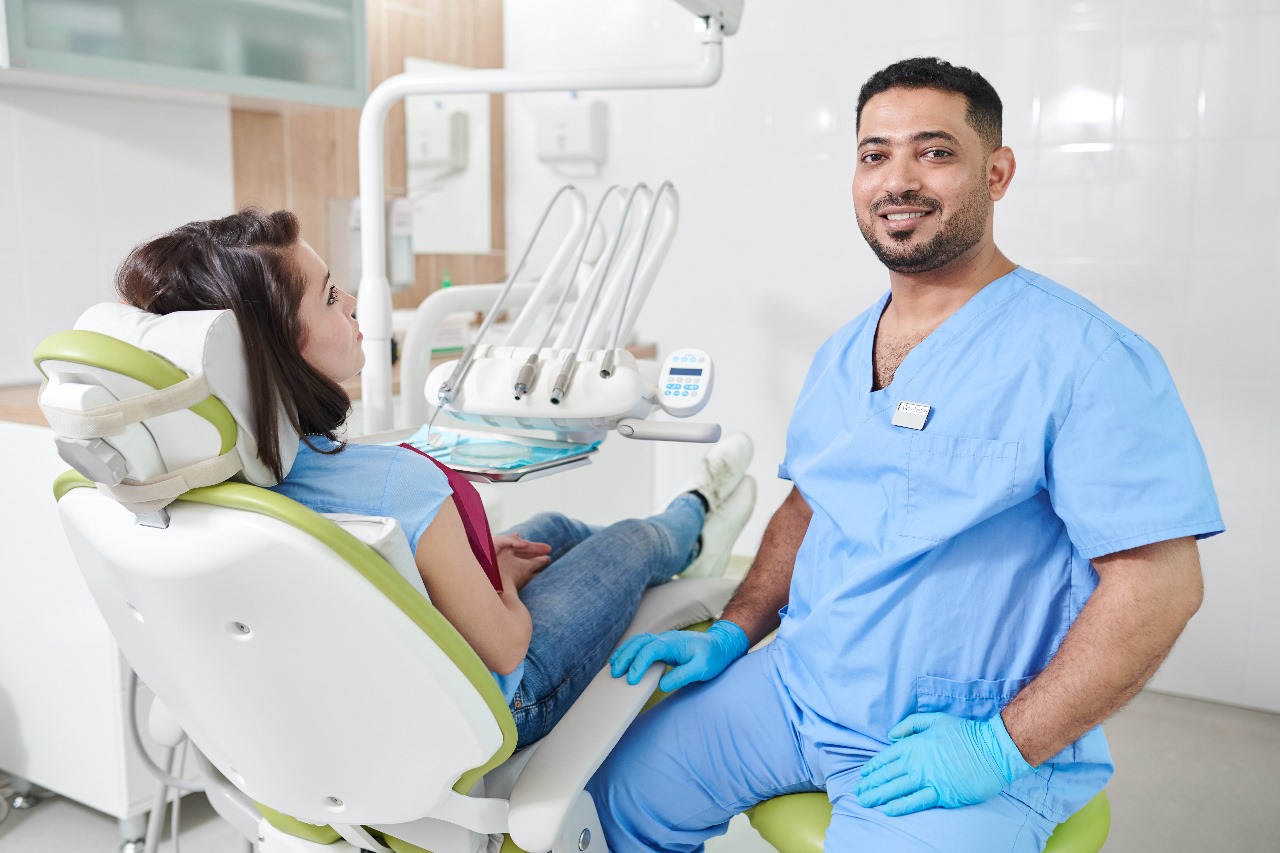Tooth extractions can often be a significant concern, especially when considering the cost involved. Many Australians wonder if Medicare, the nation’s public health insurance scheme, covers such dental procedures. Understanding Medicare’s scope and eligibility can help you navigate this critical aspect of dental health.
What Are the Common Scenarios for Tooth Extractions Covered by Medicare?
Tooth extractions may be necessary for various reasons, and in some cases, Medicare might cover these procedures. Common scenarios include:
- Severe tooth decay: When a tooth is too damaged to be repaired by fillings or crowns.
- Gum disease: Advanced periodontal disease can lead to tooth loss.
- Dental trauma: Accidents or injuries causing significant tooth damage.
- Impacted wisdom teeth: When wisdom teeth are stuck in the jaw and cannot emerge properly.
- Tooth infections: Severe infections that do not respond to other treatments.
What Are the Eligibility Criteria for Medicare Coverage?
Medicare coverage for dental procedures, including tooth extractions, is primarily available under specific circumstances. Key eligibility criteria include:
- Children under the Child Dental Benefits Schedule (CDBS): Provides up to $1,000 over two years for basic dental services.
- Health care cardholders: Individuals with a valid Health Care Card may access public dental services.
- Pensioner concession cardholders: Pensioners are often eligible for subsidised dental care.
- Seniors over a certain age: Some states offer dental schemes for older adults.
- Individuals in low-income brackets: Those with low incomes may qualify for public dental services.
What Are the Required Documentation for Coverage?
To access Medicare-covered dental services, specific documentation is required:
- Medicare card: Essential for all services covered by Medicare.
- Health care card: Needed for concession-based eligibility.
- Referral from a GP or dentist: Often required for specialist dental services.
- Proof of eligibility: Documentation to prove age, income, or concession status.
What Dental Procedures Are Covered Under Medicare?
Medicare’s coverage for dental procedures is limited and often state-specific. Here is a breakdown of what might be covered:
| Procedure | Covered Under Medicare | Eligibility for Coverage |
| General Tooth Extraction | Yes/No | Children under CDBS, emergency cases |
| Surgical Tooth Extraction | Yes/No | Health care cardholders, concession cardholders |
| Wisdom Teeth Removal | Yes/No | State-specific programs, referral required |
| Root Canal Surgery | Yes/No | Only in public dental clinics under certain conditions |
How Do State-Specific Programs Impact Medicare Dental Coverage?
State-specific programs significantly influence the availability and extent of Medicare dental coverage. Here is an overview by state:
| State | Programs Available | Eligibility Requirements | Contact Information |
| New South Wales | Public Dental Services (PDS) | Health care cardholders, pensioners | NSW Health |
| Victoria | Dental Health Services Victoria (DHSV) | Health care cardholders, low-income adults | DHSV |
| Queensland | Queensland Health Dental Services | Children, concession cardholders | Qld Health |
| South Australia | SA Dental Service | Children, pensioners, concession holders | SA Health |
| Western Australia | WA Health Dental Services | Children, low-income adults | WA Health |
Are There Additional Costs and Out-of-Pocket Expenses?
Even with Medicare coverage, there might be additional costs involved. These could include:
- Out-of-pocket expenses: Co-payments or gap payments not covered by Medicare.
- Specialist fees: Charges for specialist dental services beyond basic coverage.
- Non-covered procedures: Costs for procedures not covered by Medicare.
It’s essential to confirm with your dental provider and Medicare about any potential additional expenses.
What Is the Referral Process for Dental Extractions?
To access Medicare-covered dental extractions, a referral process is often required:
- Initial consultation: Visit a general practitioner (GP) or dentist for an assessment.
- Referral issuance: If necessary, the GP or dentist will provide a referral to a public dental clinic or specialist.
- Appointment scheduling: Contact the referred clinic or specialist to schedule an appointment.
- Procedure approval: Ensure the procedure is approved for Medicare coverage.
What Support Is Available for Dental Emergencies?
In case of dental Emergency Dentist Glenroy, VIC , Medicare provides some support, particularly through public dental services. Emergency situations might include:
- Severe pain: Acute dental pain that requires immediate attention.
- Infections: Dental infections that pose a significant health risk.
- Trauma: Injuries to the teeth or mouth needing urgent care.
How Do Public Dental Clinics Operate?
Public dental clinics play a crucial role in providing accessible dental care. These clinics typically operate under state health departments and offer services such as:
- Routine check-ups: Regular dental exams and cleanings.
- Emergency care: Immediate treatment for dental emergencies.
- Specialist services: Advanced dental treatments as needed.
Are Children Covered Under the Child Dental Benefits Schedule (CDBS)?
Yes, the CDBS covers children aged 2-17 years who meet specific eligibility criteria. The schedule provides:
- Up to $1,000 over two years: For basic dental services like examinations, X-rays, cleaning, and extractions.
- Eligibility: Based on receiving certain government benefits such as Family Tax Benefit Part A.
What Are the Benefits for Health Care Cardholders and Pensioners?
Health care cardholders and pensioners benefit from subsidised dental care through public dental services. These benefits include:
- Reduced costs: Lower fees for dental treatments.
- Access to public clinics: Availability of services at public dental clinics.
- Comprehensive care: Including routine check-ups, extractions, and more.
How Can Low-Income Individuals Access Dental Services?
Low-income individuals can access dental services through various support programs, including:
- Public dental services: Available in most states for eligible low-income adults.
- Community health centres: Providing dental care based on income.
- Dental voucher programs: Offering vouchers for use at private dental practices.
For more detailed information and to confirm your eligibility, it is recommended to contact your local health department or visit the Medicare website.
Recommended Dental Services
For those in the Glenroy area seeking comprehensive dental care, we recommend Glenroy Smiles Dental for high-quality and affordable dental services.
References
- Australian Government Department of Health
- NSW Health Public Dental Services
- Dental Health Services Victoria
- WA Health
FAQs: Can Tooth Extractions Be Covered by Medicare?
1. Is Medicare Coverage Available for All Types of Tooth Extractions?
Medicare coverage for tooth extractions is generally limited to specific situations. For children under the Child Dental Benefits Schedule (CDBS), basic dental services, including extractions, are covered. For adults, Medicare typically covers extractions only in public dental clinics for eligible health care cardholders, pensioners, and in cases of dental emergencies. Surgical extractions and specialist services may require a referral and approval for coverage.
2. Who Is Eligible for Medicare-Covered Dental Extractions?
Eligibility for Medicare-covered dental extractions includes:
- Children aged 2-17 years under the Child Dental Benefits Schedule (CDBS).
- Health care cardholders and pensioner concession cardholders.
- Seniors and low-income individuals, depending on state-specific programs. Eligibility is determined based on factors such as age, income, and concession status. Documentation like a Medicare card and proof of eligibility are required.
3. What Are the Costs Associated with Medicare-Covered Tooth Extractions?
While Medicare may cover the cost of tooth extractions in certain cases, there might still be additional costs involved. These can include:
- Out-of-pocket expenses or gap payments not fully covered by Medicare.
- Specialist fees for more complex extractions or oral surgeries.
- Costs for non-covered procedures or services not included in the Medicare schedule. It’s important to discuss potential costs with your dental provider and confirm coverage details with Medicare.
4. How Can I Access Public Dental Services for Tooth Extractions?
To access public dental services for tooth extractions under Medicare, follow these steps:
- Schedule an initial consultation with a general practitioner (GP) or dentist.
- Obtain a referral for dental services if needed.
- Contact your local public dental clinic to make an appointment.
- Provide the necessary documentation, such as your Medicare card and proof of eligibility. Public dental services are often available to eligible individuals, including health care cardholders, pensioners, and low-income adults.
5. What Dental Emergencies Are Covered by Medicare?
Medicare provides support for dental emergencies through public dental services. Covered emergencies typically include:
- Severe dental pain requiring immediate attention.
- Dental infections posing significant health risks.
- Traumatic injuries to the teeth or mouth. In emergency situations, Medicare may cover the necessary treatments, including tooth extractions, to address urgent dental issues.
6. Are There Any Additional Dental Benefits for Children Under Medicare?
Yes, children aged 2-17 years may be eligible for the Child Dental Benefits Schedule (CDBS), which provides up to $1,000 over two years for basic dental services, including examinations, X-rays, cleaning, and tooth extractions. Eligibility is based on receiving certain government benefits such as Family Tax Benefit Part A. The CDBS aims to improve children’s oral health by making essential dental care accessible and affordable.












